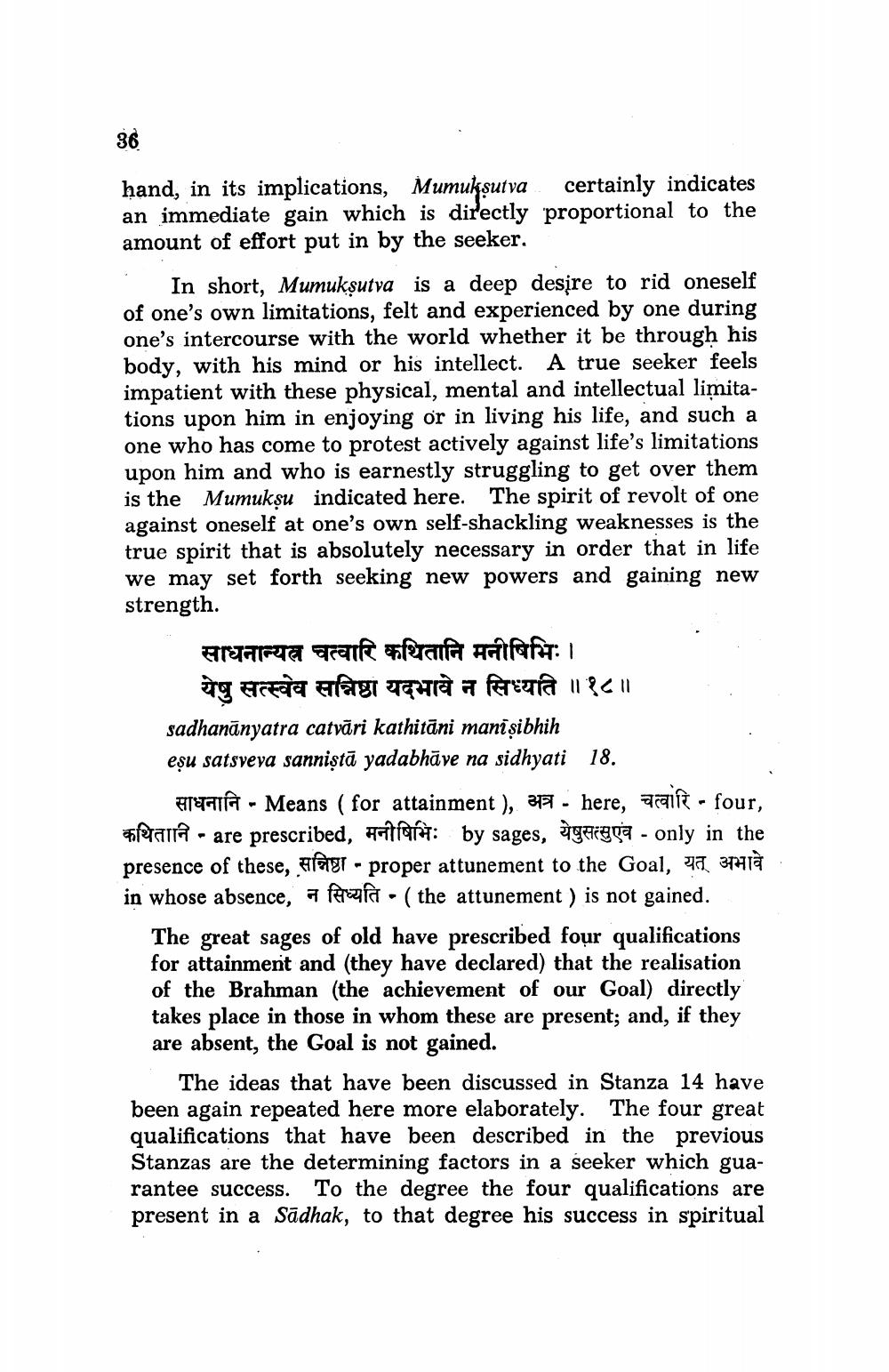________________
hand, in its implications, Mumuksutva certainly indicates an immediate gain which is directly proportional to the amount of effort put in by the seeker.
In short, Mumuksutva is a deep desire to rid oneself of one's own limitations, felt and experienced by one during one's intercourse with the world whether it be through his body, with his mind or his intellect. A true seeker feels impatient with these physical, mental and intellectual limitations upon him in enjoying or in living his life, and such a one who has come to protest actively against life's limitations upon him and who is earnestly struggling to get over them is the Mumuksu indicated here. The spirit of revolt of one against oneself at one's own self-shackling weaknesses is the true spirit that is absolutely necessary in order that in life we may set forth seeking new powers and gaining new strength.
साधनान्यत्र चत्वारि कथितानि मनीषिभिः ।
येषु सत्स्वेव सन्निष्ठा यदभावे न सिध्यति ॥१८॥ sadhanānyatra catvāri kathitāni manişibhih eșu satsveva sanniştā yadabhāve na sidhyati 18.
ETTAI - Means ( for attainment ), 3771 - here, gault - four, कथितानि - are prescribed, मनीषिभिः by sages, येषुसत्सुएंव - only in the presence of these, सन्निष्ठा - proper attunement to the Goal, यत् अभावे in whose absence, a taula - ( the attunement ) is not gained.
The great sages of old have prescribed foạr qualifications for attainment and (they have declared) that the realisation of the Brahman (the achievement of our Goal) directly takes place in those in whom these are present; and, if they are absent, the Goal is not gained.
The ideas that have been discussed in Stanza 14 have been again repeated here more elaborately. The four great qualifications that have been described in the previous Stanzas are the determining factors in a seeker which guarantee success. To the degree the four qualifications are present in a sādhak, to that degree his success in spiritual




